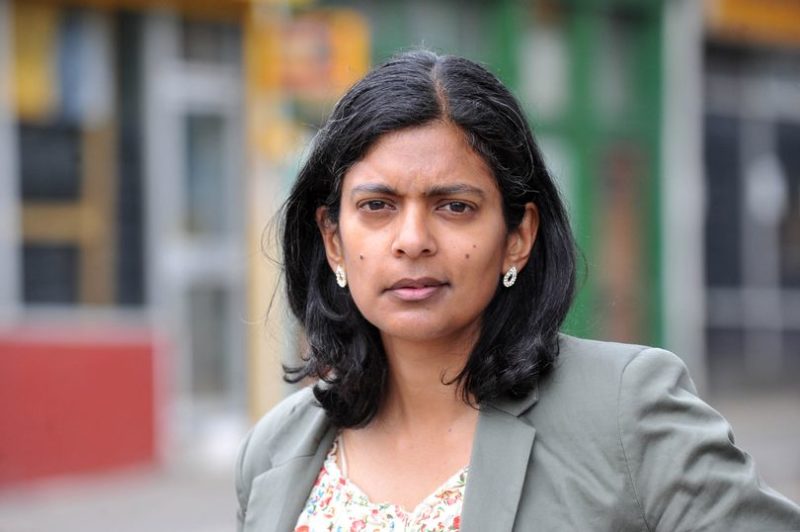Rupa Huq MP Member of Parliament for Ealing Central & Acton

This opinion piece first appeared in the Sunday Telegraph.
The death of Sarah Everard has rocked the nation and an outpouring of grief and anger has ensued. It’s also been a cathartic moment for many. For me, it brought back memories of a nasty knife mugging in my twenties that left me with fleshwounds and a leg that even now creaks if I shake it. Most people will thankfully never face such an experience, but a lurking fear of crime among women is widespread.
Part of the problem is the way our towns and cities are designed. So on Monday, in the virtual House of Commons chamber, I asked Priti Patel, as one small Asian woman to another, to mandate meaningful consideration of women’s safety into the design of housing and highways.
She was so keen on the idea that she called me her “honourable friend” in her answer – not normal for a political opponent. But now we need to see action.
There is a school of thought that it is possible to “design out” crime, or the fear of it, through sensible planning and design. When the notorious estates of Moss Side were redesigned in the 1980s, for example, blind alleys and dingy stairwells were opened up so that there were fewer places a victim could become trapped. And when I was stabbed, I was able to attract help because of passing traffic.
However, such considerations are far too often overlooked and women’s views on the subject ignored.
At the beginning of the pandemic, the Government decided to start encouraging local councils to introduce so-called low-traffic neighbourhoods. These are government-funded schemes designed to encourage cycling and walking, and cut emissions. It is a laudable idea. But by eliminating motor traffic from some roads, a form of “natural surveillance” has also been stopped.
Since this experiment was hastily introduced – or should I say inflicted? – without an equality impact assessment, let alone consultation among residents or the ambulance service, I have been emailed and stopped in the street by women saying that they now feel scared in the newly quiet ghost streets after dark, and even by men saying that they feel penned in like animals. When I recounted them on social media, even reproducing examples, these genuinely held perceptions were dismissed as rubbish.
I have been told that cab firms are no longer taking women to their front doors as they can’t negotiate their way through the paranoia-inducing mazes of blocked roads. The hassle of navigating the long way round also makes such journeys more expensive, creating an additional financial disincentive for women to take taxis home.
The man from the ministry and the council bureaucrat do not have a monopoly on wisdom. If we are going to have safer cities, we need the Government and town halls to start listening to the views of women.
